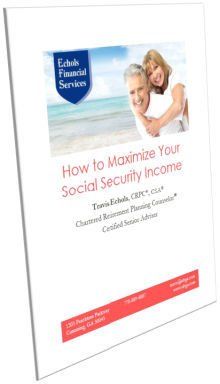Your Pension: Lump Sum or Monthly Payments?

Originally written on 9/16/2015.
Sign up to receive my free monthly email articles on retirement planning and investments
.
If you have an offer from your company to take a one-time lump sum payment instead of monthly payments over your lifetime, you
have a very important decision to make.
If you have a pension from an employer, congratulations! Fewer and fewer companies are offering defined pension plans to their
employees. Greater longevity has strained many companies to keep up with the demands of life-time guaranteed payments.
A pension guarantee is much like an individual insurance annuity whereby a person can annuitize an amount of savings by trading in a lump sum for a guaranteed lifetime income stream. Insurance actuaries know that those who live long and take more payments over their lifetimes are covered financially by those who die young and take fewer payments. But one must also remember pension payments are in today's dollars; and without a cost of living adjustment, they can significantly diminish in purchasing power over long periods.
Many factors should be considered before making a decision about a lump sum offer. Here are some questions you should be asking:
- What are my current financial needs?
- What do I anticipate my future income needs to look like?
- What other income sources do I have or anticipate in retirement?
- What is the strength of the company making the pension guarantee?
- Do the pension payments come with a cost of living adjustment?
- What do I anticipate the average inflation rate to be over my retirement years?
- What is the likelihood of me living a long time?
- Who else do I want to benefit from this pension if I do not live a long time? Spouse? Children?
- What is the present value of the lump sum relative to payments I would receive, assuming a reasonable rate of return and normal life expectancy?
- What rate of return does the company use in calculating my monthly pension payments?
- What impact do taxes have on my various options?
- What impact would my choice have on other associated benefits such as health insurance benefits for you and/or your spouse?
- How would I invest and withdraw the lump sum assets if I rolled it over to an IRA/401(k)?
- How do the income payments and family net worth values compare (lump sum versus payments) under various scenarios, including worst-case scenarios such as the early death of one or both spouses--before and after annuitizing (i.e., starting the payments)?
As
you can see, there are lots of things to consider. However, when a
person thoughtfully (and mathematically) works through these
questions in light of their individual situation, usually one option
will emerge as superior to the others.
One question that sometimes brings clarity is this, "If I had the lump sum already in my account, would I choose to deposit it into the pension plan and let them distribute it to me per their plan?" If your answer is no, you've answered the question. Don't let where the assets are now cloud your decision. You have the choice of either lump sum or payments. Be neutral and make and unbiased decision.


Travis Echols , CRPC®, CSA
Receive free Social Security Guide by email




Investment Advisory Services offered through JT Stratford, LLC. JT Stratford, LLC and Echols Financial Services, LLC are separate entities.











